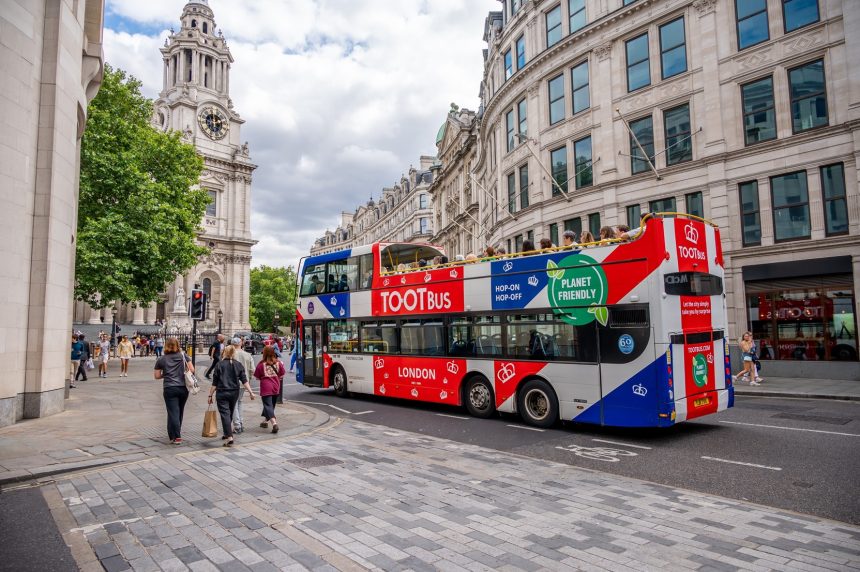Extended oversight and regulation of open-top tour bus services in London and their associated activities must be forthcoming from Transport for London (TfL) and councils, a major player in that market Tootbus has said.
Managing Director Gavin Brooking claims that vehicle congestion at stops and a prevalence of roadside ticket sellers have both come to potentially impact “how the public views our industry.”
The business is thus calling for a currently voluntary code of conduct for operators of open-top bus services in London to be made mandatory with enforcement by parties including TfL and councils, including around dwell times, use of correct stopping places, and kerbside ticket sellers.
Mr Brooking additionally advocates an approach from operators and other bodies where Enhanced Partnership-style powers are introduced as part of the mandatory code of conduct. Tootbus would be willing to contribute to the cost of an independent chair for that arrangement.
Under the present voluntary approach to the code of conduct, participants review its contents on an annual basis and vote on any proposed amendments. TfL is advised of changes. However, that voluntary nature means that there is no requirement for every operator to be part of it.
A mandatory alternative should also have within it commitments around decarbonisation, Mr Brooking believes. He points to several open-top operators in London that have begun those moves but believes that a formalised path towards zero-emission is necessary.
He adds that Tootbus has brought to TfL’s attention how the number of tour buses at key stops can be potentially difficult for pedestrians, cyclists and other road users.
TfL has told the RATP Dev subsidiary that it is working with Westminster Council to understand how it would be able to endorse, monitor or enforce the code of conduct, although any such TfL work would be solely related to bus movements and passenger flow and safety. It is currently monitoring data captured and submitted from on-road operations.
“As it stands, TfL does not enforce the code of conduct and it is not concerned with any ‘rules’ about the number of kerbside agents and where they stand, etc, as that falls entirely under the jurisdiction of Westminster Council,” says Mr Brooking.
Tootbus adds that Westminster Council is aware of its concerns and that the operator has met with elected representatives to highlight those worries. Mr Brooking has also consulted a lawyer about them, although he says that the legal route is something he wishes to avoid.
When questioned on whether his calls could lead to more onerous regulatory requirements for businesses in the London open-top market, Mr Brooking says he would welcome such a shift.
“I believe there should be more regulation, as does my company,” he says. However, the Tootbus chief accepts that not all players in the London open-top market are in total agreement with that operator’s position. At least one is, but others “are not necessarily seeking the same as us,” he acknowledges.
Economic viability for operators is a key part of Tootbus’s calls for a mandatory code of conduct. Mr Brooking says that saturation of the market has left his business behind on projections. Over-supply is also contributing to congestion in some areas of central London, he adds.



























